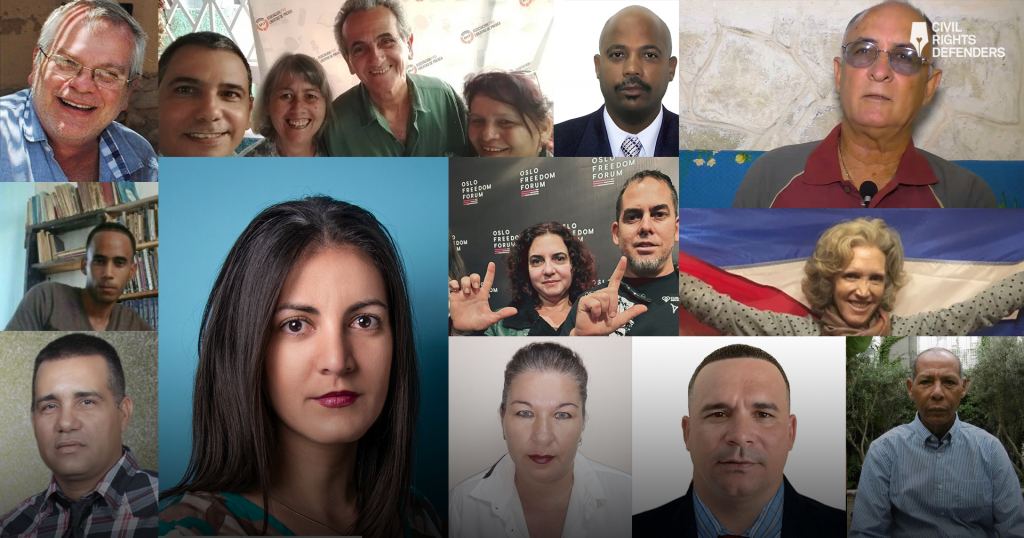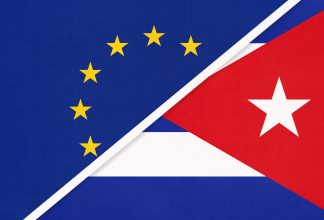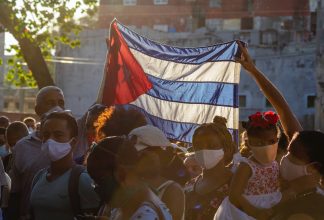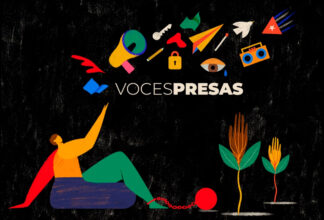Letters from Cuba: Human Rights Defenders Write Letters to the EU

The independent Cuban civil society has been excluded all through the negotiation and implementation process of a new agreement between the EU and Cuba. To include independent civil society in the process, Civil Rights Defenders invited Cuban organisations and human rights defenders to write policy recommendations to the EU.
In October last year, a human rights dialogue was held between Cuba and the European Union. However, all the Cuban organisations that attended the dialogue in Brussels have close ties to the Cuban communist party. Only three Cuban civil society organisations were invited to attend the dialogue. All three organisations are politically, legally, and financially dependent on the Cuban communist party.
The EU-Cuba agreement
The human rights dialogue is held once a year and is a formal part of the new Political Dialogue and Cooperation Agreement, PDCA, between the EU and Cuba. The agreement was signed by the EU and Cuba in 2016. All individual EU member states have to approve the agreement before it can be fully adopted. The agreement was approved by the Swedish parliament in November last year. Lithuania is now the only country left that has refused to approve it.
Civil Rights Defenders and several of our partners have criticised the agreement, stating that human rights should be respected and that democracy reforms should be introduced before the agreement is adopted.
“The agreement between the EU and the Cuban government does not propose concrete changes for Cuba. It is an agreement that excludes an important issue; the respect for human rights on the island,” said Maydolis González Blanco, a Cuban human rights defender who contributed to the project.

Independent civil society has been excluded
The human rights dialogue could have been an important event if independent Cuban civil society organisations had been allowed to attend. Instead, the Cuban government had the right to approve all organisations attending, both European and Cuban. All throughout the negotiation process and implementation of the agreement, the independent Cuban civil society has been excluded.
“It is the Cuban government that decides who can participate, and therefore independent civil society’s needs and concerns are not listened to. The agreement lacks legitimacy among Cuban independent civil society,” said Maydolis Gonzalez Blanco.
Policy proposals to the EU
To promote the proposals of independent civil society organisations, Civil Rights Defenders invited organisations and human rights defenders to contribute with policy papers on how the EU should work with Cuba in the coming years.
“This has been a great opportunity for independent civil society and for human rights defenders in Cuba to raise our voices. It has allowed us to demonstrate that in Cuba, there are civil society organisations that are discriminated, persecuted, and censored, simply because they defend and promote human rights. It is utterly important that the EU takes into consideration the voice and opinions of independent human rights activists, and recognises their existence,” Maydolis Gonzalez Blanco continued.
In total, Civil Rights Defenders received 31 letters. One of the contributors is Roberto Quiñones, a Cuban journalist who was sentenced by a Cuban court in September last year to one year in prison for his journalistic work. Among the other contributors are some of the most known Cuban human rights defenders.
A report with all of the proposals will be presented during a seminar in the European Parliament on 4 February. Until then, you can read some of the texts here in Spanish, and in English.
Read more:
Letters from Cuba-EU (In English).
Cartas de Cuba-EU (En español).
Invitation – Letters from Cuba to the EU.
391 Cuban Human Rights Defenders in Open Letter to Margot Wallström.
Respect for Human Rights Should be a Prerequisite to Ratify the EU Cuba Agreement.
Human Rights Focus in EU-Cuba Negotiations Must be Revisited.


